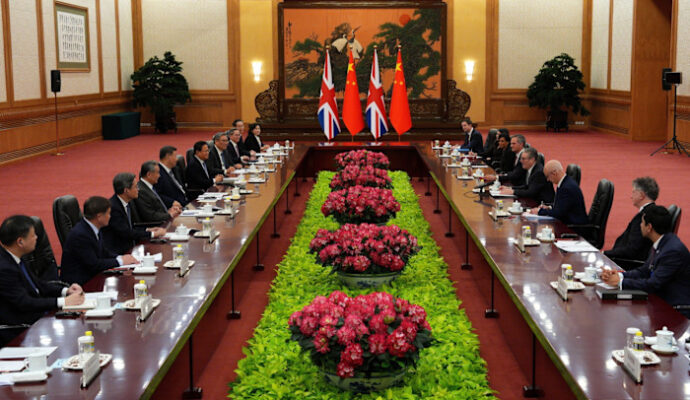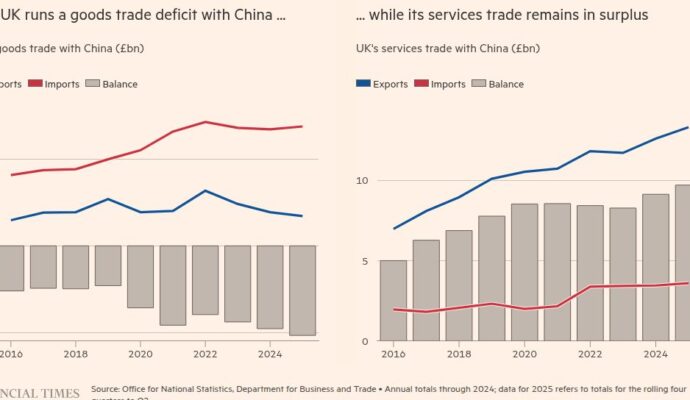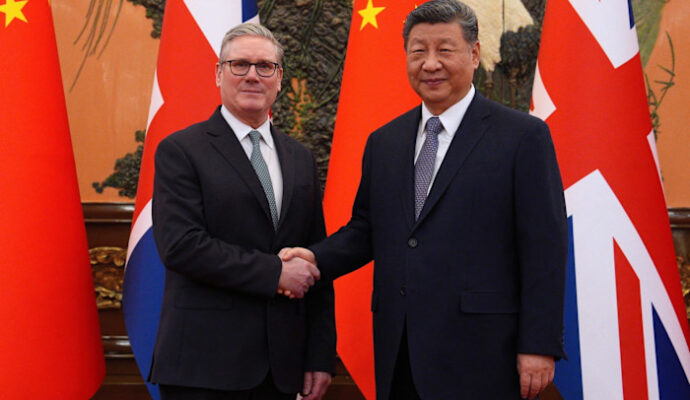
The frameworks, paradigms and doctrines of that era, of any kind, are simply insufficient to meet the challenges of the 21st century. Bolder thinking is required, thinking that shifts away from states, whether great powers or lesser powers, democracies or autocracies. It is time to put people first, to see the world first as a planet of eight billion people rather than as an artificially constructed system of 195 countries and to measure all state actions in terms of their impact on people. Instead of competing with China today on one issue and cooperating tomorrow on another, Mr. Biden must prioritize cooperation on global issues and challenge other nations, regardless of whether they are democracies, autocracies or something in between, to join in.
This approach is known as globalism, which has a bad name because of its association with globalization. But globalism is actually closer to localism, to beginning with people, where they live and what they need, regardless of what colored square on the map they happen to be born in. It is a people-centered rather than a state-centered approach to problem-solving on a global scale. It does not pretend that governments don’t exist or don’t matter, but rejects the idea that interstate rivalry matters as an end in itself — the essence of geopolitics.
Globalism also sees government officials as a set of actors who can contribute to either global problems or global solutions. To succeed as problem solvers, however, they must work side by side with global corporations and networks of cities, civic groups, faith groups, universities, scientists and others. These actors are not just “helpers” or catalysts or constituents. They are players in global politics.
Mr. Biden sometimes seems to be moving in this direction. His speech to the U.N. General Assembly in September laid out a long list of global problems, from health and climate change to inequality and corruption. In my view, his greatest foreign policy achievement to date was to secure a minimum global corporate tax rate of 15 percent, ensuring that corporations worldwide pay at least a portion of their fair share for the public goods — from roads to intellectual property laws — that they rely on and that benefit all citizens. The Biden administration also embraces an “all of society” approach to fighting climate change.
Time and again, however, Mr. Biden’s other goal — of beating China, or more broadly of lining up the democracies to beat the autocracies — gets in the way. This week, thanks to the work of John Kerry, the climate envoy, the United States and China reached an important agreement to cooperate on deeper cuts to both carbon dioxide and methane emissions. It’s not enough, however, and misses a larger opportunity to mobilize the United States, China, the European Union and India as co-leaders on a global climate challenge.
The lure of competition — often on the edge of conflict — with a rival superpower is just too strong, both for Mr. Biden and for the tight-knit band of brothers who form the core of his foreign policy team. Secretary of State Antony Blinken and Jake Sullivan, the national security adviser, are veterans of the Obama administration’s “pivot to Asia,” a concept designed and advanced in large part by Kurt Campbell, now the White House Asia czar.
From the perspective of 20th-century geopolitics, it makes sense for the Biden administration to approach its relationship with China as one in which the United States has many different goals: economic, military and diplomatic. On some issues, like climate or health, we seek China’s cooperation. On many more, like military primacy, freedom of navigation in the South China Sea, fair trade, intellectual property rights, cybersecurity and human rights, our relationship requires competition and coercion. Hence we have the frequent trade-off debate, in which China hawks have demanded that Mr. Kerry not give an inch to get concessions on Chinese emissions or to encourage other actions that are necessary to stop the globe from warming another degree.


